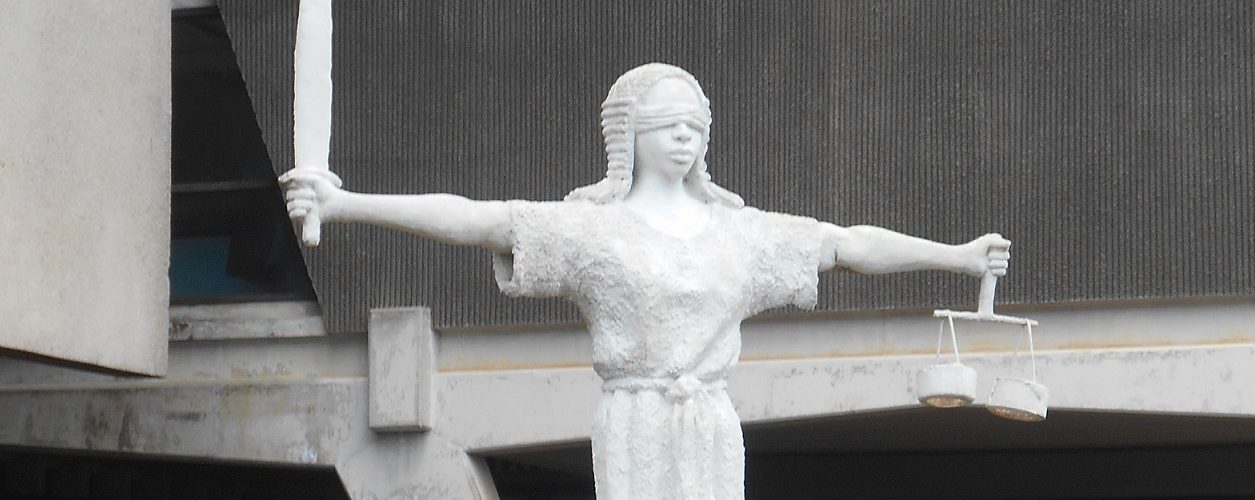She is draped in her pink dress as she watches the judge flip through her case file in the prison courtyard. It has been three tortuous years here. Her dignity robbed from her in every way imaginable. Her crime, issuing a dud cheque. The penalty for her crime is a maximum of two years, but she has been awaiting the outcome of her trial for three years.
A Chief judge, Justice Ishaq Usman shakes his head as he hurries through her case file, not wanting her to spend another minute in hell. She is soon released, the judge ascertaining she has exceeded the maximum penalty for her alleged crime. She collapses, grateful, and begins to cry.
Whether she was guilty or not, would never be known, but she paid fully for her alleged crime. She is not alone, the Nigerian justice system is notorious for a high number of untried cases, prolonged criminal cases, and illegal prison sentences for alleged criminals. A report covering data from 2011 to 2015 showed that 72.5% of Nigeria’s total prison population were inmates serving time for crimes they had yet been convicted for. There are boys in prison whose only crime was loitering, but end up spending years in prison for it.
Rape is a criminal offence case in Nigeria. Rape cases are prosecuted like the majority of all the other cases. Meaning they are overshadowed by an ineffective criminal justice system, and doomed to fail, drag-on, or never be resolved before they start off. In a country where the criminal code recommends life imprisonment for rape convicts and 14 years for attempted rape, only about 18 people have ever been convicted. This June, the Inspector-General of Police, Mohammed Adamu disclosed that about 717 rape cases were reported between January and May.
Rape victims don’t report to the police because they can hardly point to one rapist that was successfully put on trial and convicted to prison. Also, there is the case of unnecessary adjournment in courts, delaying justice for as long as possible.
Imagine that you were raped and made to face your rapist for seven years while the court tries to ascertain whether he is guilty or not. Picture the emotional torture, the battering from the defence lawyers, the repeated docking. Picture yourself made to recount your story for the 100th time before the court, the defence looking for loopholes. No one would want to go through that; no one should have to go through that. And there is the issue of the recurrent cost of litigation because of adjournments. Rape victims cannot be asked to seek justice from courts already crushed underneath a pile of cases.
It is high time that a legal and institutional structure exists, that gives access to justice for rape victims within the shortest possible time. All of the activism in the world against rape would only be like pouring water in a basket if specialised court backed by the Constitution to hear, try, and convict rape cases do not exist in Nigeria.
There are many things wrong with the electoral system in Nigeria. But establishing an Election petition tribunal backed by the Constitution as amended in section 285 and section 133 of the Electoral Act 2011 has been a masterstroke. Any issue as to who won or lost an election is presented before an election petition tribunal. According to Section 258 (6) of the Constitution “, an Election Tribunal must deliver its judgement in writing in 180 days from the day a petition is filed.”
If it is possible for election cases to be resolved within a 180-day period, it is not too much to ask that the same courtesy be extended to rape cases, which are more heinous in nature. All is not doom and gloom though, in recent times, with a surge in reported rape cases, the Attorney General of the Federation and Minister of Justice, Mr Abubakar Malami has been making a case, and push for special courts for rape cases. Having special rape courts would not solve the rape pandemic in Nigeria, there is still the case for an upgraded forensic department in the police. But Rome was not built in a day.
Recently, Sierra Leone set up a special court to fast track trial of rape cases. This court is saddled with the responsibility of ensuring rape victims get justice as soon as possible. So, maybe, Nigeria, the leading nation in West Africa, would humble herself and learn a thing or two from her West African counterpart.


